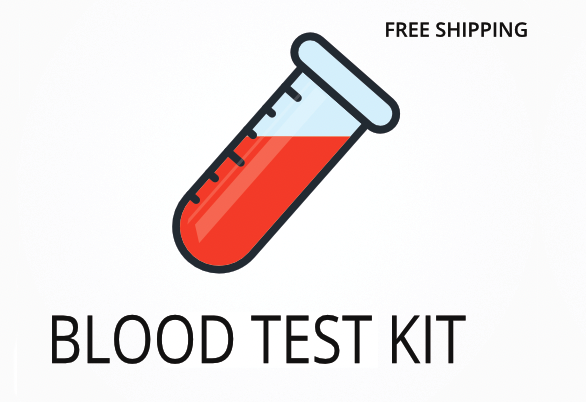| Test Name | Reference Range | Significance | High Levels of Food Intolerance Test (IgG Antibodies) | Genova |
|---|---|---|---|
| Dairy | |||
| Casein IgG | 0-1.0 | Casein is a protein in milk. High IgG levels may indicate a delayed immune response to dairy products. | High levels of Casein IgG mean your immune system may react to dairy, possibly causing digestive or skin symptoms. |
| Cow’s Milk IgG | 0-1.0 | Measures immune response to cow’s milk. High levels can be linked to symptoms like bloating or congestion after dairy intake. | High levels of Cow’s Milk IgG mean you may have a delayed reaction to cow’s milk. |
| Goat’s Milk IgG | 0-1.0 | Assesses immune response to goat’s milk. High levels may cause similar symptoms as cow’s milk sensitivity. | High levels of Goat’s Milk IgG mean you may react to goat’s milk. |
| Grains & Gluten | |||
| Wheat IgG | 0-1.0 | Wheat IgG shows if your immune system reacts to wheat proteins. High levels may be linked to digestive or joint symptoms. | High levels of Wheat IgG mean you may have a delayed reaction to wheat. |
| Gluten IgG | 0-1.0 | Gluten is a protein in wheat, barley, and rye. High IgG levels may be linked to symptoms like bloating or fatigue after eating gluten. | High levels of Gluten IgG mean you may react to gluten-containing foods. |
| Oat IgG | 0-1.0 | Oat IgG measures immune response to oats. High levels may cause digestive upset or skin symptoms after eating oats. | High levels of Oat IgG mean you may react to oats. |
| Rye IgG | 0-1.0 | Rye IgG shows if your immune system reacts to rye. High levels may be linked to digestive or joint symptoms. | High levels of Rye IgG mean you may react to rye. |
| Eggs | |||
| Egg White IgG | 0-1.0 | Egg white IgG measures immune response to egg whites. High levels may cause digestive or skin symptoms after eating eggs. | High levels of Egg White IgG mean you may react to egg whites. |
| Egg Yolk IgG | 0-1.0 | Egg yolk IgG shows if your immune system reacts to egg yolks. High levels may be linked to digestive or skin symptoms. | High levels of Egg Yolk IgG mean you may react to egg yolks. |
| Nuts & Seeds | |||
| Almond IgG | 0-1.0 | Almond IgG measures immune response to almonds. High levels may cause digestive or skin symptoms after eating almonds. | High levels of Almond IgG mean you may react to almonds. |
| Peanut IgG | 0-1.0 | Peanut IgG shows if your immune system reacts to peanuts. High levels may be linked to digestive or skin symptoms. | High levels of Peanut IgG mean you may react to peanuts. |
| Walnut IgG | 0-1.0 | Walnut IgG measures immune response to walnuts. High levels may cause digestive or skin symptoms after eating walnuts. | High levels of Walnut IgG mean you may react to walnuts. |
| Pecan IgG | 0-1.0 | Pecan IgG shows if your immune system reacts to pecans. High levels may be linked to digestive or skin symptoms. | High levels of Pecan IgG mean you may react to pecans. |
| Legumes & Beans | |||
| Soy IgG | 0-1.0 | Soy IgG measures immune response to soybeans. High levels may cause digestive or skin symptoms after eating soy products. | High levels of Soy IgG mean you may react to soy. |
| Kidney Bean IgG | 0-1.0 | Kidney bean IgG shows if your immune system reacts to kidney beans. High levels may be linked to digestive or skin symptoms. | High levels of Kidney Bean IgG mean you may react to kidney beans. |
| Fruits | |||
| Apple IgG | 0-1.0 | Apple IgG measures immune response to apples. High levels may cause digestive or skin symptoms after eating apples. | High levels of Apple IgG mean you may react to apples. |
| Banana IgG | 0-1.0 | Banana IgG shows if your immune system reacts to bananas. High levels may be linked to digestive or skin symptoms. | High levels of Banana IgG mean you may react to bananas. |
| Strawberry IgG | 0-1.0 | Strawberry IgG measures immune response to strawberries. High levels may cause digestive or skin symptoms after eating strawberries. | High levels of Strawberry IgG mean you may react to strawberries. |
| Grape IgG | 0-1.0 | Grape IgG shows if your immune system reacts to grapes. High levels may be linked to digestive or skin symptoms. | High levels of Grape IgG mean you may react to grapes. |
| Vegetables | |||
| Broccoli IgG | 0-1.0 | Broccoli IgG measures immune response to broccoli. High levels may cause digestive or skin symptoms after eating broccoli. | High levels of Broccoli IgG mean you may react to broccoli. |
| Carrot IgG | 0-1.0 | Carrot IgG shows if your immune system reacts to carrots. High levels may be linked to digestive or skin symptoms. | High levels of Carrot IgG mean you may react to carrots. |
| Spinach IgG | 0-1.0 | Spinach IgG measures immune response to spinach. High levels may cause digestive or skin symptoms after eating spinach. | High levels of Spinach IgG mean you may react to spinach. |
| Tomato IgG | 0-1.0 | Tomato IgG shows if your immune system reacts to tomatoes. High levels may be linked to digestive or skin symptoms. | High levels of Tomato IgG mean you may react to tomatoes. |
| Meats & Fish | |||
| Chicken IgG | 0-1.0 | Chicken IgG measures immune response to chicken. High levels may cause digestive or skin symptoms after eating chicken. | High levels of Chicken IgG mean you may react to chicken. |
| Beef IgG | 0-1.0 | Beef IgG shows if your immune system reacts to beef. High levels may be linked to digestive or skin symptoms. | High levels of Beef IgG mean you may react to beef. |
| Salmon IgG | 0-1.0 | Salmon IgG measures immune response to salmon. High levels may cause digestive or skin symptoms after eating salmon. | High levels of Salmon IgG mean you may react to salmon. |
| Tuna IgG | 0-1.0 | Tuna IgG shows if your immune system reacts to tuna. High levels may be linked to digestive or skin symptoms. | High levels of Tuna IgG mean you may react to tuna. |
| Other Foods & Additives | |||
| Chocolate IgG | 0-1.0 | Chocolate IgG measures immune response to chocolate. High levels may cause digestive or skin symptoms after eating chocolate. | High levels of Chocolate IgG mean you may react to chocolate. |
| Coffee IgG | 0-1.0 | Coffee IgG shows if your immune system reacts to coffee. High levels may be linked to digestive or skin symptoms. | High levels of Coffee IgG mean you may react to coffee. |
| Yeast (Food) IgG | 0-1.0 | Yeast IgG measures immune response to food yeast. High levels may cause digestive or skin symptoms after eating foods with yeast. | High levels of Yeast (Food) IgG mean you may react to yeast-containing foods. |
| Total IgE | 0-100 | Total IgE measures the overall level of IgE antibodies, which are linked to immediate allergic reactions. High levels may suggest a tendency toward allergies. | High levels of Total IgE mean you may have a higher risk of immediate allergic reactions. |
Medical Review Board
Reviewed by Jeff Donohue M.D. from Body Logic and Brady Hurst DC, CCCN. Written by True Health Lab’s team of editorial health contributors.
Disclaimer: This information is for educational purposes only and not intended as medical advice. Consult your healthcare provider for personalized guidance.
Why Customers Trust True Health Labs - What People are saying
Also rated 4.6 out of 5 based on 3452 ShopperApproved reviews- See all TrueHealthLabs.com reviews.






